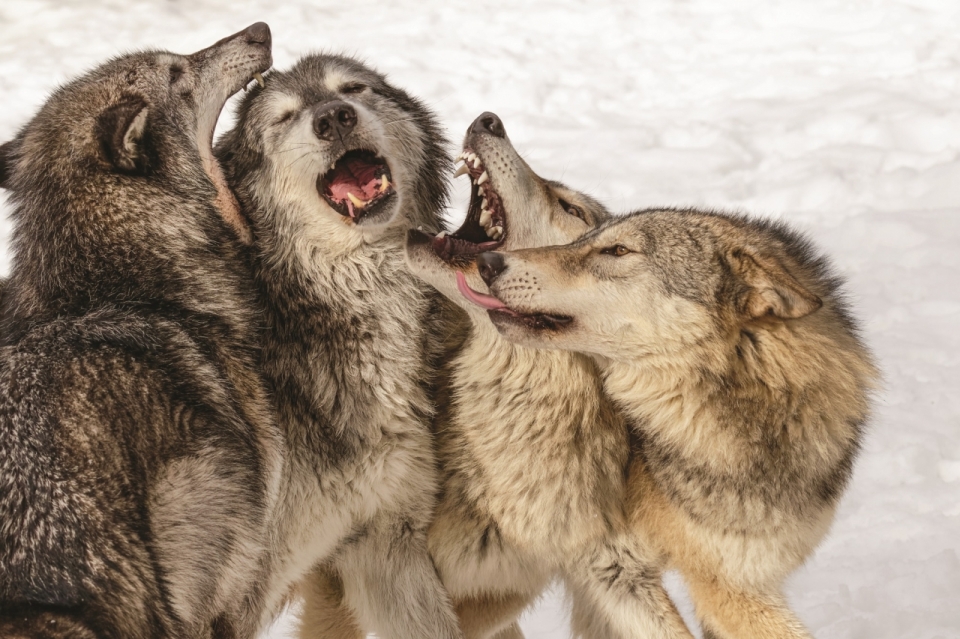
Whether it’s gobbling up Little Red Riding Hood’s granny or blowing little pigs’ houses down, wolves are traditionally cast as villains and portrayed as scheming, vicious and menacing. Now, thanks to the latest research, this looks set to change. Wolves are getting an image makeover. New studies are adding to a growing body of evidence that paints a very different picture of these animals and gives an intriguing insight into a sophisticated social structure centred around wolf family life.
At the root of this is a complex level of communication built partly on facial expressions that reflect a wolf’s feelings. In effect, wolves ‘talk’ by making faces at each other.
Big, bad wolves are renowned in folklore for causing trouble for characters like Little Red Riding Hood, Peter and the three little pigs. The more subordinate members of the pack are more elaborate in their facial expressions
Researchers believe wolves may have used these communication skills to build bridges with hunter-gatherer people in an evolutionary journey that ultimately led to the domestic dogs we know and love today. In the first of its kind, research at Durham University is starting to translate this wolf talk and looks set to deliver important lessons about how we interact with our dogs at home and some disturbing news about our designer dog breeds.
로그인 및 구독신청 후 이용해주세요.

